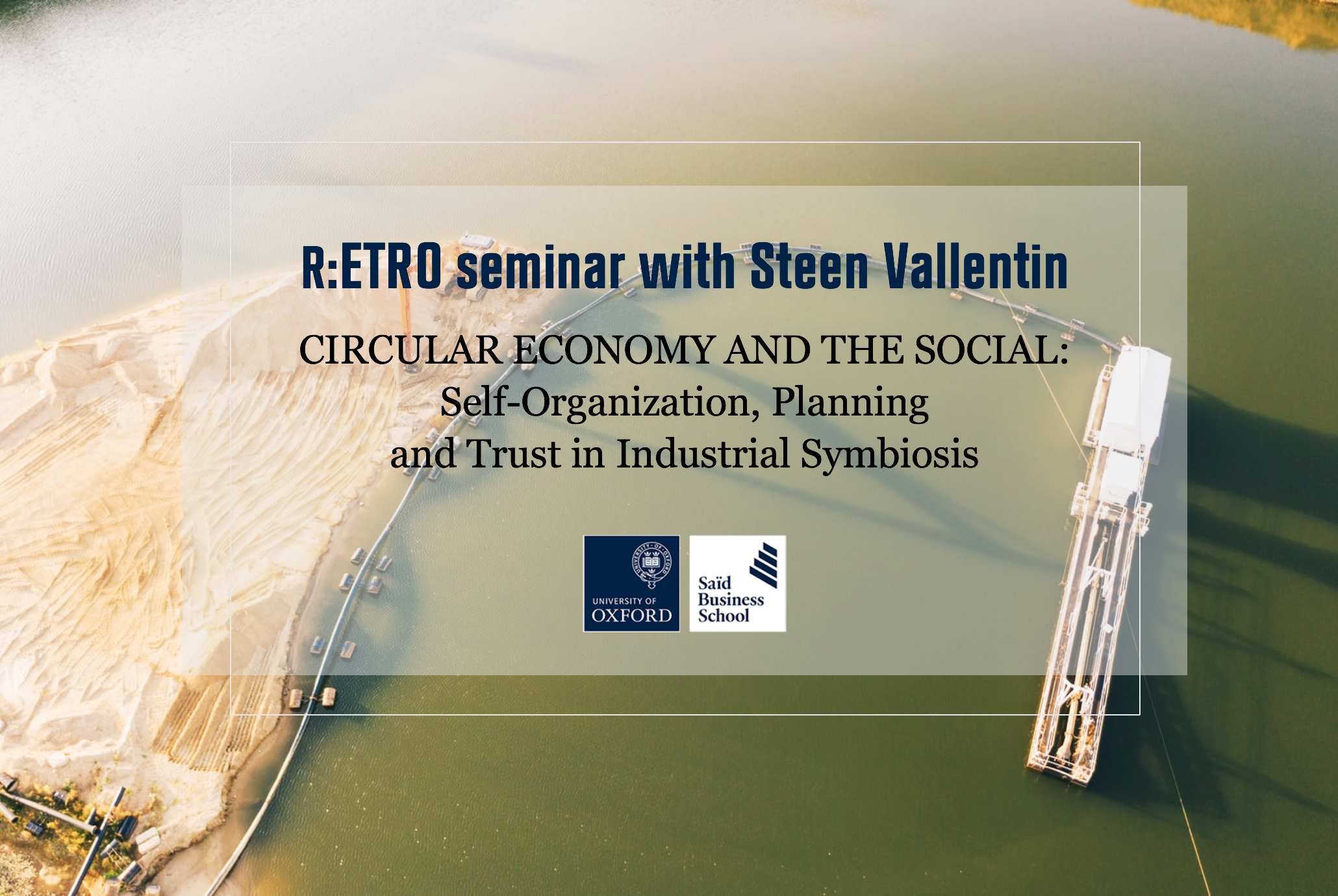Circular Economy and the Social: Self-Organization, Planning and Trust in Industrial Symbiosis
| Steen Vallentin, Associate Professor in Corporate Social Responsibility at Copenhagen Business School, Academic Co-Director of CBS Sustainability, will be the guest speaker for a seminar being hosted by Alan Morrison, Professor of Law and Finance, and Rita Mota, Intesa Sanpaolo Research Fellow, Saïd Business School, University of Oxford, as part of the R:ETRO seminar series - Reputation: Ethics, Trust, and Relationships at Oxford. |
 |
A key insight of industrial symbiosis is that it is difficult to reduce the environmental impact of industrial activities if one considers a company in isolation from other companies. Hence, industrial symbiosis engages companies in collective exchange structures enabling development towards a more circular and eco-efficient industrial system – through physical exchanges of materials, energy, water and/or by-products that turn waste streams into resources. The present study is centered on the notion of trust and its functions in industrial symbiosis. Although the need of trust in establishing industrial symbiosis is widely acknowledged in extant research, there is a lack of elaborate theorizing about trust in this context. We consider trust as part of the social constitution of industrial symbiosis and focus on how trust is woven into (economic) self-organization and (political) planning in the development of industrial symbioses. More specifically, we approach trust as an organizing principle alongside market (prize) and hierarchy (authority). The theoretical starting point is that trust orients, enables, and constrains economic behavior and is able to mitigate limitations or weaknesses of market and hierarchy. Building on the work of Adler (2001), we propose a conceptual framework for understanding and analyzing the mechanisms of trust in industrial symbiosis and how trust intersects with market and hierarchy. While the sustainability literature tends to be dominated by environmental sciences in defining problems and by economics in defining solutions, we argue for the value of a critical, sociologically informed approach and for the need to consider industrial symbiosis as a social and organizational construct.